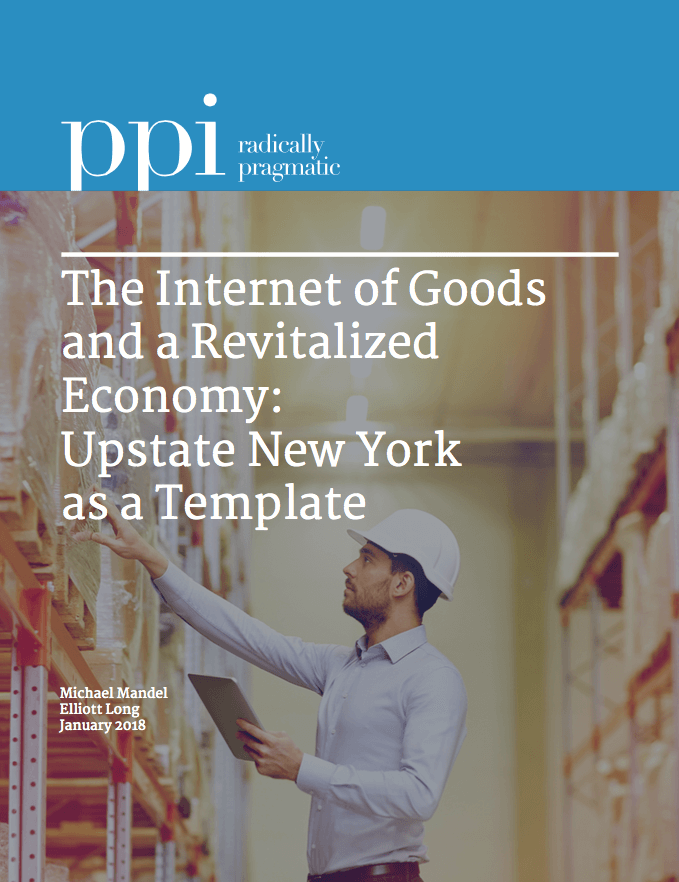Report uses Upstate New York as case study for potential economic boon from ‘Internet of Goods’
WASHINGTON —The Progressive Policy Institute (PPI) today released a new report by Chief Economic Strategist Michael Mandel highlighting how the next wave of digitally-driven manufacturing – an essential part of what he calls the “Internet of Goods” – has the potential to revitalize local economies across the country under the right public policies. The report uses the conditions in Upstate New York – particularly the region from Buffalo to Rochester to Syracuse – as a real-world test bed to determine best practices for attracting and retaining Internet of Goods industries.
 “Because new Internet of Goods industries incorporate real-time data and advanced analytics into their business practices, high-speed high-capacity mobile broadband is essential. … What’s needed are policies that encourage broadband companies to bring high-speed broadband networks to these areas of the country that are ideally suited for digitally-driven manufacturing companies, while not taking actions that delay or depress the build-out of these networks by making it cost prohibitive to build them.”
“Because new Internet of Goods industries incorporate real-time data and advanced analytics into their business practices, high-speed high-capacity mobile broadband is essential. … What’s needed are policies that encourage broadband companies to bring high-speed broadband networks to these areas of the country that are ideally suited for digitally-driven manufacturing companies, while not taking actions that delay or depress the build-out of these networks by making it cost prohibitive to build them.”
“With its world-class universities, access to interstate highways and shipping routes, educated workforce, and ample building space vacated by former manufacturing plants and other industries, [Upstate New York] possesses many essential qualities to forge a robust Internet of Goods economy,” Mandel writes.
Mandel argues the next generation of wireless broadband networks, usually called 5G networks, are essential infrastructure for the Internet of Goods. They provide enough bandwidth to power driverless trucks, guide drones without interruption, and support digital manufacturing. These networks will be built on millions of small cells throughout the country — in buildings or outdoors on utility poles, light poles, traffic lights, or exterior walls of buildings — and can transmit a lot of data over a short range. Thus, a robust broadband network needs to have many cells.
However, in terms of attractiveness for small cell build-out, Mandel writes, Upstate New York starts out with a handicap relative to comparable regions due to lower GDP density. On top of that, local government policies are hindering the deployment of small cells or 5G networks by imposing or considering new and prohibitive costs on the installation of the equipment needed to bring high-speed mobile broadband to the region.
“As a result, broadband companies will find alternative sites for building out their networks, jeopardizing not only the future of new industries that have located Upstate, but also closing the door to future industries and revenues they would generate,” Mandel concludes.
“Upstate New York should complement its universities, workforce, transportation and affordable land advantages by encouraging the essential high-speed, high-capacity broadband network to power future industries and create jobs.”
###